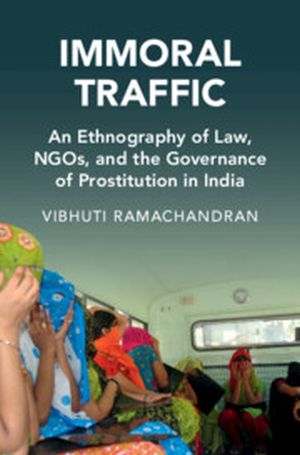
This insightful ethnography delves into the complex intersection of India's anti-prostitution law and global anti-trafficking campaigns, and how they impact sex workers in both voluntary and involuntary situations. Immoral Traffic examines the role of legal actors and NGOs in implementing these interventions, revealing the mix of paternalism, humanitarianism, punitive care, bureaucracy, and morality in their efforts. Through a sequence of interventions prescribed by India's anti-prostitution law, the book follows the experiences of sex workers, from rescues to courts to carceral shelters. It sheds light on the ways in which donor-driven NGOs draw upon this law to implement anti-trafficking agendas, and how these interventions are navigated by women removed from the sex trade. Detailed and eye-opening, this book is a valuable resource for scholars and students of anthropology, law and society, gender and sexuality studies, South Asian studies, global studies, and critical studies of NGOs and humanitarianism.
The author, Vibhuti Ramachandran, is an Assistant Professor of Global and International Studies at the University of California, Irvine. Her work connects the anthropology of law, NGOs, and the Indian state, and her broader interests include gender and sexuality,care and punishment, and labor and migration. The University of California's Hellman Fellowship supported the completion of this book.